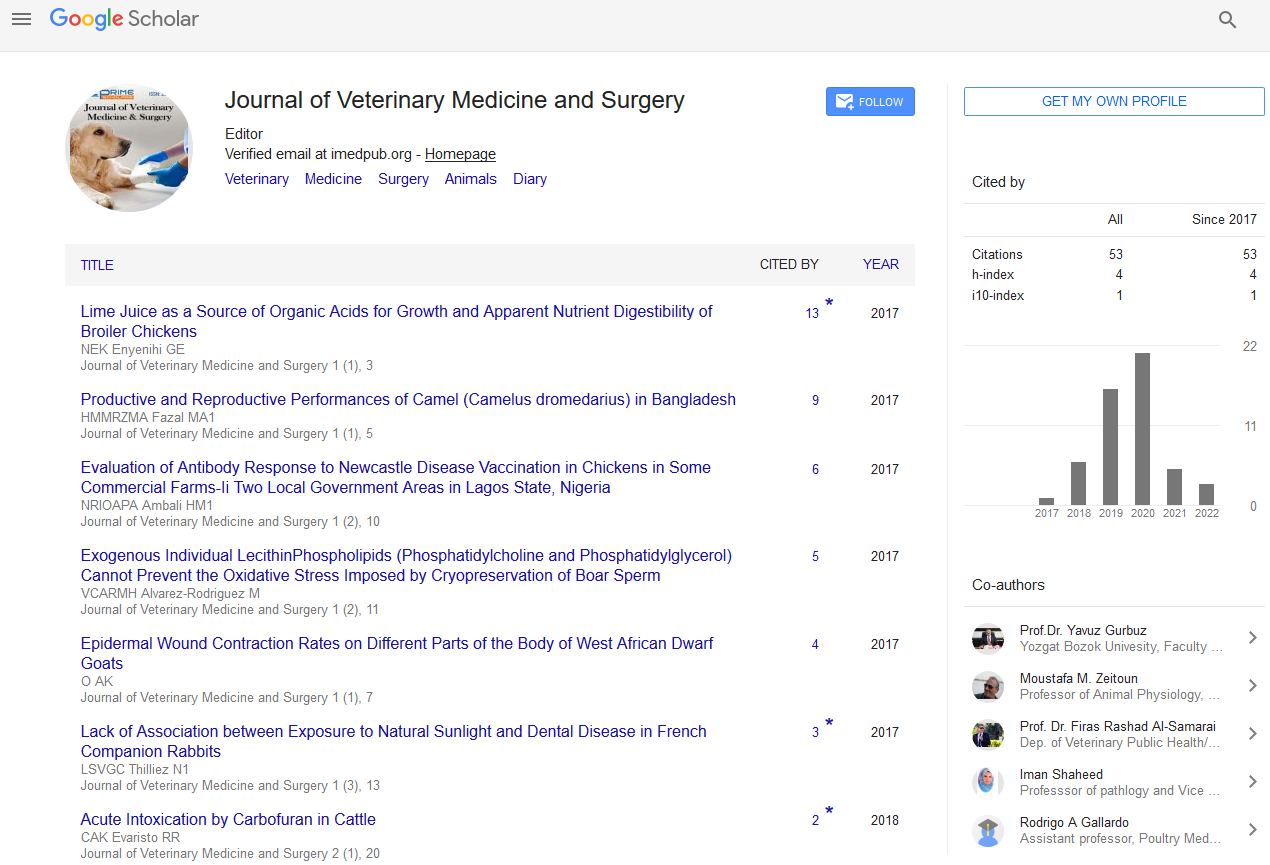Opinion Article - (2023) Volume 7, Issue 2
Livestock Evolution: Genetically Modified Animals Redefining Farming
Arnold Goldstein*
Department of Veterinary Science, Cornell University, USA
*Correspondence:
Arnold Goldstein,
Department of Veterinary Science, Cornell University,
USA,
Email:
Received: 29-May-2023, Manuscript No. IPJVMS-23-17598;
Editor assigned: 31-May-2023, Pre QC No. IPJVMS-23-17598(PQ);
Reviewed: 14-Jun-2023, QC No. IPJVMS-23-17598;
Revised: 19-Jun-2023, Manuscript No. IPJVMS-23-17598(R);
Published:
26-Jun-2023, DOI: 10.36648/2574-2868.7.2.11
Introduction
In an ever-evolving world of scientific advancement, the concept
of genetically modified organisms (GMOs) has become a
topic of both fascination and apprehension. Among these, genetically
modified livestock stand out as a prime example of the
intersection between biotechnology and agriculture. The modification
of animals’ genetic material to enhance their traits,
such as growth rate, disease resistance, and product quality,
raises important discussions about food security, animal welfare,
and environmental impact. Genetic modification in livestock
involves the deliberate alteration of an animal’s DNA to
introduce or enhance specific traits. This process typically includes
identifying and isolating genes responsible for desired
traits, then inserting them into the genome of the target animal.
The resultant genetically modified animal inherits these
beneficial traits and can pass them on to subsequent generations.
The primary goal of genetically modified livestock is to
improve overall agricultural productivity. For instance, scientists
have developed pigs with enhanced lean meat production,
cows that produce more milk, and chickens that grow faster.
Description
These modifications aim to address global food demands, reduce
resource consumption, and potentially alleviate hunger
in certain regions. Increased Productivity: One of the key benefits
of genetically modified livestock is their enhanced productivity.
These animals can produce more meat, milk, or other
products in a shorter period, potentially meeting the escalating
demands of a growing global population. Improved Nutritional
Content: Genetic modifications can be tailored to enhance
the nutritional profile of livestock products. For example, milk
from genetically modified cows could contain higher levels of
essential nutrients like vitamins and minerals, thereby improving
the nutritional value of the products derived from them.
Disease Resistance: Genetic modification can confer resistance
to various diseases, reducing the need for antibiotics and other
treatments. This could lead to healthier animals and safer
food products for consumers. Environmental Sustainability: By
enhancing the efficiency of livestock production, genetically
modified animals could help reduce the environmental impact
of agriculture. This might include decreased land and water
usage, as well as lowered greenhouse gas emissions. Ethical
Considerations: Critics of genetically modified livestock raise
ethical concerns related to the potential suffering of these animals.
Modifying animals for increased productivity could lead
to unintended health issues or discomfort, sparking debates
about the moral implications of altering their natural biology.
Environmental Impact: While genetically modified livestock
could contribute to more efficient resource utilization, there
are worries about unintended consequences for ecosystems.
The release of genetically modified animals into the wild, intentionally
or accidentally, could disrupt local ecosystems and
threaten biodiversity. Food Safety: One of the most contentious
issues surrounding GMOs is their impact on human health.
While extensive testing is generally conducted to ensure the
safety of genetically modified livestock products, there remains
a degree of skepticism regarding potential long-term effects on
consumers.
Conclusion
Ensuring rigorous safety testing, transparent labeling, and ongoing
monitoring are essential steps in building public trust
in genetically modified livestock. The future of genetically
modified livestock depends on finding a balance between the
potential benefits and the ethical, environmental, and safety
concerns they raise. As technology advances, scientists may
develop more precise and controlled methods for genetic modification,
potentially addressing some of the current issues. In
conclusion, genetically modified livestock present a complex
and multifaceted issue at the crossroads of science, agriculture,
and ethics. The potential benefits of increased productivity,
improved nutritional content, disease resistance, and
environmental sustainability are compelling.
Citation: Goldstein A (2023) Livestock Evolution: Genetically Modified Animals Redefining Farming. J Veterinary Med. 7:11.
Copyright: © 2023 Goldstein A. This is an open-access article distributed under the terms of the Creative Commons Attribution License, which permits unrestricted use, distribution, and reproduction in any medium, provided the original author and source are credited.

